It is reasonable to assume that the twenty-first century is the era of technology, and a lot of individuals aspire to work in this field. Personally, I think getting into technology is not the problem; I think the problem is choosing the appropriate path inside technology because if you choose the wrong area, you will be stranded for months. I sincerely hope that this article will assist you in choosing the best professional choice.
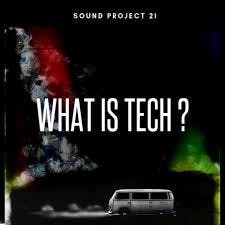
What is tech 🖥️📱💻?
I've attempted to come up with an answer to this issue, but the only thing I can say for sure is that "tech" is one of those incredibly elusive words that seems to encompass a wide range of things while being incredibly challenging to explain.
I've found materials that refer to it as an industry sector, a process, a product, a class of tools, a body of skills and knowledge, and, finally, as a variety of jobs, to mention a few. The definition of "technology" has changed over time and is always being revised.
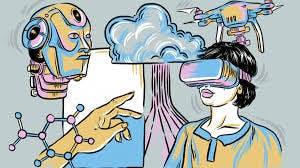
Tech Paths.
The tech sector offers a variety of career pathways, from non-code to coding roles. I'll provide a brief explanation of each and what it entails.
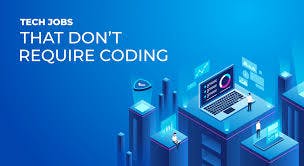
Non-coding roles.
This is an aspect of tech that doesn't require coding. How frequently do you observe tech-related discussions online where the main topics are software, HTML, running code, and other (boring) technical topics? Yes, rather frequently.
And now you're wondering, "Is technology all about coding?" To get a tech job, do I need to learn how to code? Simple response: No!
A study of over 500,000 US professional LinkedIn accounts revealed that the tech industry employs 3 times as many non-techies as it does technical individuals. Consequently, there is space for those who have no interest in learning to code!
It almost seems as though there are just coding professions because they have received so much media attention. Am going to list some of them and explain what they are. Customer success managers, brand designers, user interface (UI) designers, technical writers, and user experience (UX) designers are a few examples.
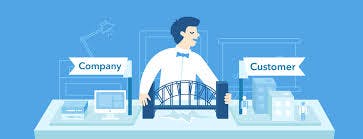
Customer Success Managers.
Customer success managers assist clients as they move from the sales stage into the support stage. CSMs interact directly with consumers and offer them timely value propositions, as opposed to serving as customer care agents. Customers' relationships with the company are strengthened as a result, and they grow and achieve their goals.
Consider the CSM to be a customer mentor. They make sure everything goes properly after purchase and explain the sales process. Customers can contact their CSM directly with questions and work with them to fix any urgent problems.
What Does a Customer Success Manager Do?
A customer success manager works with customers to ensure they're receiving the tools and support needed to achieve their goals. This includes advising them on buying decisions and onboarding new users after purchase. CSMs have an in-depth understanding of the customer's needs and are responsible for communicating common customer behaviours to the sales, marketing, and product teams.
From pre-sales to post-purchase, CSMs complete a variety of tasks and create a mutually-beneficial relationship with your customers.
Responsibilities of a Customer Success Manager.
1. Promote the business/company:
A CSM has a chance to substantially affect your client base because they deal directly with customers. They serve as your company's advocates, letting clients know how you can satisfy their demands. This stellar reputation will not only keep your clients happy but will also motivate them to recommend your business/company to their acquaintances.
2. Onboard new customers:
One of the top priorities for CSMs is onboarding. This is because instructing clients on how to use your product is crucial. Based on the tasks they hope to finish, onboarding should concentrate on the features they need to master. They can accomplish their objectives and catch up as quickly as feasible in this manner.
3. Establish communication channels between the support staff and clients:
Customers will occasionally have inquiries that are outside the CSM's responsibility. You should direct technical questions, minor product issues, and straightforward business inquiries to your customer service team. CSMs should promote communication between clients and support staff so that users can more easily resolve minor or urgent issues.
4. Be the customer's advocate:
A CSM should feel responsible for speaking up for the needs of the clients they serve. They must have a comprehensive awareness of what your customers enjoy and hate about your products, which can be learned from surveys, reviews, recommendations, and other sources. To make sure that the customer's voice is always taken into account in your company's choices, CSMs should compile, analyze, and share this data with other departments.
Key Skills for Customer Success Managers.
Customer-First Mindset Communication Relationship Management Expectations Empathy Active Listening Teaching/Mentoring Technical Skill Reading and Writing Strategic Planning Time Management Data Integration Persuasiveness Project Management Creative Thinking Cross-Selling and Upselling
If you have any of the aforementioned abilities, you ought to consider pursuing a career in custom success management. You may still learn more about it by doing further research, so don't hurry into anything—you'll always find what works for you.
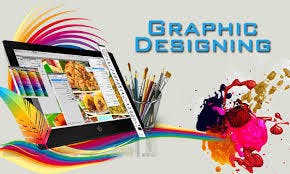
Graphic Designers.
Graphic designers are visual communicators who create concepts by hand or by using specialized graphic design software. They communicate ideas to inspire, inform, or captivate consumers through both physical and virtual art forms that include images, words, or graphics. By constant communication with clients, customers, and other designers, they ensure that their designs accurately reflect the desired message and effectively express information.
What do graphic designers do?
Graphic designers use a variety of design components to create artistic or decorative effects to communicate ideas by fusing art and technology. For commercials, brochures, publications, and corporate reports, they create the overall layout and production design. Usually, this begins with creating basic sketches of design concepts using a computer program or by hand.

Seven distinct professions in graphic design.
As you learn more about this industry, you'll probably hear about some of these kinds of graphic design. However, you'll also see that some of these job descriptions are similar. Graphic designers, like many other professionals, can put their talents to use in a variety of jobs, depending on the business or sector they work in.
Your expertise in graphic design is adaptable and useful in a variety of settings. Look through the selection to find which style of graphic design you prefer.

Product design
Product designers use their creative prowess to research, design, and develop new products. The types of products they create depend on which industry they work in, but it could include everything from toys to tools to technology. These designers conduct market research to make sure their product will appeal to the target audience and won’t violate competitors’ copyrights. Then they’ll create early illustrations and prototypes of their designs before they’re sent into production.
• Type of work produced: Various types of products, product packaging, marketing designs, product illustrations, and prototypes.
• Skills needed: Market research, prototyping, 3D modelling, Adobe Creative Suite®.

Branding design
Branding is a type of corporate design that focuses on the visual identity of a company or product. These designers must be in tune with the marketing message a brand wants to send, as well as the target audience they wish to reach. Every aspect of branding design must align with these goals, as well as fit into the larger aesthetic of the company or organization. Consumers’ perception of a company is often driven by its branding, so graphic designers in this speciality put all their skills to work developing a visual brand that will connect with the target audience and project the right message about the company.
• Types of work produced: Logos, website branding, company letterhead, business cards, signage, and company brochures.
• Skills needed: Adobe Creative Suite, market research, communication skills, teamwork.

Website design
There’s a graphic designer behind nearly every website you visit and app you download. These design pros need a strong sense of user experience (UX) design to make sure the sites they design are as user-friendly as possible on both desktops and mobile devices. They use all their skills to design online spaces that are visually appealing, easy to navigate, compatible with SEO best practices, and aligned with their client's branding.
• Types of work produced: Websites and apps.
• Skills needed: Branding, UX design, wireframing, SEO, basic coding, problem-solving.
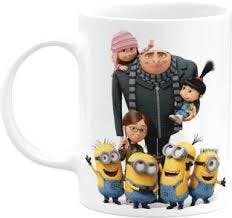
Print design
The digital age may have changed the world of graphic design, but that doesn’t mean there’s not still a print market! These graphic designers specialize in creating work that is meant to be viewed in a physical capacity. From billboards to business cards, these designers can create digital designs that go beyond the screen and translate well to the physical realm.
• Types of work produced: Brochures, flyers, billboards, stickers, stationery sets, T-shirts, mugs, and other products.
• Skills needed: Layout design, print design, colour theory, Adobe Creative Suite.

Publishing design
Graphic designers who work in the publishing industry typically work on books or magazines. They’re responsible for creating eye-catching covers that will appeal to the market audience, as well as designing page layouts that present information in a way that’s appealing and easy to read. They work closely with writers and editors to achieve just the right look for a project, whether it’s designing an eye-catching edgy photo spread for a magazine or selecting just the right font for the next bestseller.
• Types of work produced: Book and magazine covers, ebook layout and design, magazine spreads, graphs, or other images in nonfiction books.
• Skills needed: Adobe Photoshop, Adobe InDesign®, market research, attention to detail.
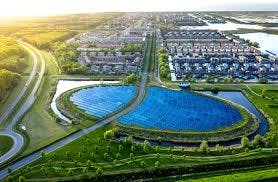
Environmental design
Environmental graphic design combines basic design principles with elements of architecture and landscape design to create signs, maps, and other visual elements that people use to navigate the world around them. According to the Society for Experiential Graphic Design (SEGD), “It encompasses the broader notion of all communication in the built environment,” including visuals like digital text that appears on the exterior of buildings, museum exhibit layouts, and the upcoming development of “smart cities.”
• Types of work produced: Signage, exterior building displays, wayfinding systems, retail store design, museum exhibits, and exterior design elements such as fountains and sculptures.
• Skills Needed: Creativity, communication skills, urban design, Adobe Creative Suite.
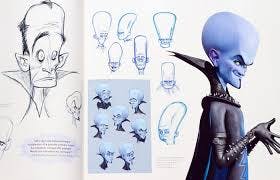
Animation design
Animation and motion designers use specialized software to create everything from cartoons to animated social media graphics. The graphics these designers create can provide entertainment via TV shows or video games, draw attention to a corporate social media account or help people learn through animated informational videos. Animation designers work with a team to take their creative ideas from rough sketches to fully animated creations.
• Types of work produced: Video games, cartoons, and animations for television or movies, brand animation for social media channels, and motion graphics for online videos.
• Skills needed: Storyboarding, CAD software, video editing software, problem-solving, teamwork.
Which type of graphic design is right for you?
These several graphic design styles demonstrate the wide range of alternatives available to prospective designers. Whatever area of this creative vocation sparks your interest, all you need to do is give it your all to be successful.

Technical Writer.
A technical writer is a skilled information communicator whose job is to communicate knowledge to two or more parties in a way that makes it easy for them to understand and convey it.
What is technical writing?
In general, a technical writer's goal is to make items and processes simple to understand.
Technical documentation is necessary for almost all contemporary multinational corporations. It has gotten so bad that producing technical material is becoming a job function in and of itself. It takes a certain kind of person to convert complex knowledge into prose that the end user can easily understand at all levels of the corporate and commercial hierarchy.
A technical writer is in charge of several duties, such as:
• Collecting technical information about their department's or company's area of expertise.
• Consider the demands of the business while planning the production of technical publications.
• Sort information based on its usefulness and relevancy.
• Make and improve the required documentation.
• To ensure data protection, make copies of all technical documents and enter them into the database.
• Maintain a complete vocabulary, library, and records of technical terms.
Subject matter research and technical document planning are technical writers' two primary responsibilities, regardless of the industry they work in.

Technical writing skills.
• Clear understanding and knowledge of your products-depth.
• knowledge of your product’s industry.
• User persona targeting.
• Technical documentation essentials.
•Mastering the mode of communication.
• Knowledge of technical writing software tools.
•Basic graphic & web design skills.
• Research skills.
•Teamwork & working with others.
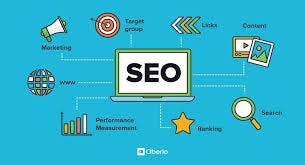
Search Engine Optimisation (SEO) Specialist.
A search engine optimization specialist, also known as an SEO specialist, evaluates, tests, and modifies websites to make them more search engine friendly. As a result, the websites rank higher in the search results on popular search engines like Google and Bing.
A website's pages are optimized by an SEO specialist to improve user experience, ensure appropriate search results, and increase website traffic, lead volume, and brand awareness. In other words, an SEO specialist is no different from any other traditional or digital marketer in that their main goal is to increase sales for the business they work for.
What are the duties of an SEO Specialist?
The duties of an SEO Specialist vary depending on whether they work for a digital marketing agency, a company's department of digital marketing, or as a freelancer for a client, but the vast majority of SEO Specialist job postings will involve all or most of the following: • Create optimization tactics that boost the company's website's position in search engine results.
• The SEO Specialist will carry out experiments, gather and evaluate data and outcomes, find trends, and identify insights when running paid search ads to maximize ROI.
• Manage the costs associated with SEO efforts by adhering to a spending plan, forecasting monthly costs, and settling discrepancies.
• Work closely with the web development team to make sure that all website content complies with SEO best practices.
• Drive SEO in content production and content marketing by collaborating with the editorial and marketing teams.
• Ensure that your page is optimized for search engine marketing. for usage in the company's website and marketing materials, conduct continuing keyword research, discovery, and optimization.
• Create and execute a link-building strategy.
•Change website architecture, content, linking and other factors to improve SEO positions for the target.
• Monitor daily performance metrics with SEO tools such as Google Analytics to understand SEO strategy performance collaborate with others within the marketing department to manage SEO strategy and write compelling and high-quality website content, including blog posts and page descriptions to improve website search results.
What qualities define a successful SEO Specialist?
• A marketing-savvy mind.
The technical parts of SEO play a significant role in the process, so it's critical to identify the problems that might be causing Google to rank your website lower than it should in the search results. However, once you get over that, employment in the SEO sector frequently shares many characteristics with those in other digital marketing or even traditional marketing: in the end, you must design and position content so that it defines the value of the customer while nudges them closer to a sale.
The challenging element is producing material that appeals to readers on the opposite side of a search engine while still satisfying a Google algorithm. Having that comes with practice.
However, greater SEO knowledge is needed to link as an SEO specialist and a more general digital marketing professional. The social media landscape, web design and development, viral marketing strategies, overall business goals that help drive brand awareness and conversions, consumer psychology, the target audience to whom you're marketing, and content marketing at a deeper level are all things you must always take into account to succeed in an SEO role.
• A capacity for strategic thinking.
Everything is impacted by SEO, as we've established. Due to the significance of corporate websites, SEO needs to be integrated with the other factors around a site.
Having clear objectives for SEO marketing is beneficial. Your objective as an SEO specialist is to concentrate on things like traffic generation, brand awareness raising, search engine rankings, or conversions (turning someone who visits your website into a customer).
An SEO specialist will be successful if they can define these objectives and then carry them out while implementing an SEO plan.
• Excellent communication abilities and a sense of cooperation.
A business's sales, customer service, web development, analytics, IT, marketing, and other divisions are just a few of the many departments that an SEO specialist will deal with. Furthermore, it's not always clear why making modifications to a website can improve SEO and, as a result, drive more traffic and increase conversion rates. Your ability to communicate will be useful in this situation.
SEO experts must be able to clearly and persuasively articulate why adjustments are required and how they will improve the website and the bottom line of the business. Additionally, a component of your role entails working on the website with teams from a variety of experiences and perspectives.
• Adaptability and Curiosity.
Google frequently modifies the algorithms it uses to rank search engine results. Depending on your viewpoint, the fact that search engine algorithms change so frequently and without prior notice or explanation may be annoying or thrilling for you; nevertheless, a competent SEO specialist embraces this challenge with enthusiasm.
To succeed in the SEO industry, you must be nimble. Continuous learning is advantageous for many workers, but SEO specialists need to thrive. Additionally, if you're in charge of a single company's website, you can't afford to let up because it's your responsibility as an SEO expert to regularly check its content to determine if it complies with evolving SEO best practices.
Product marketing.
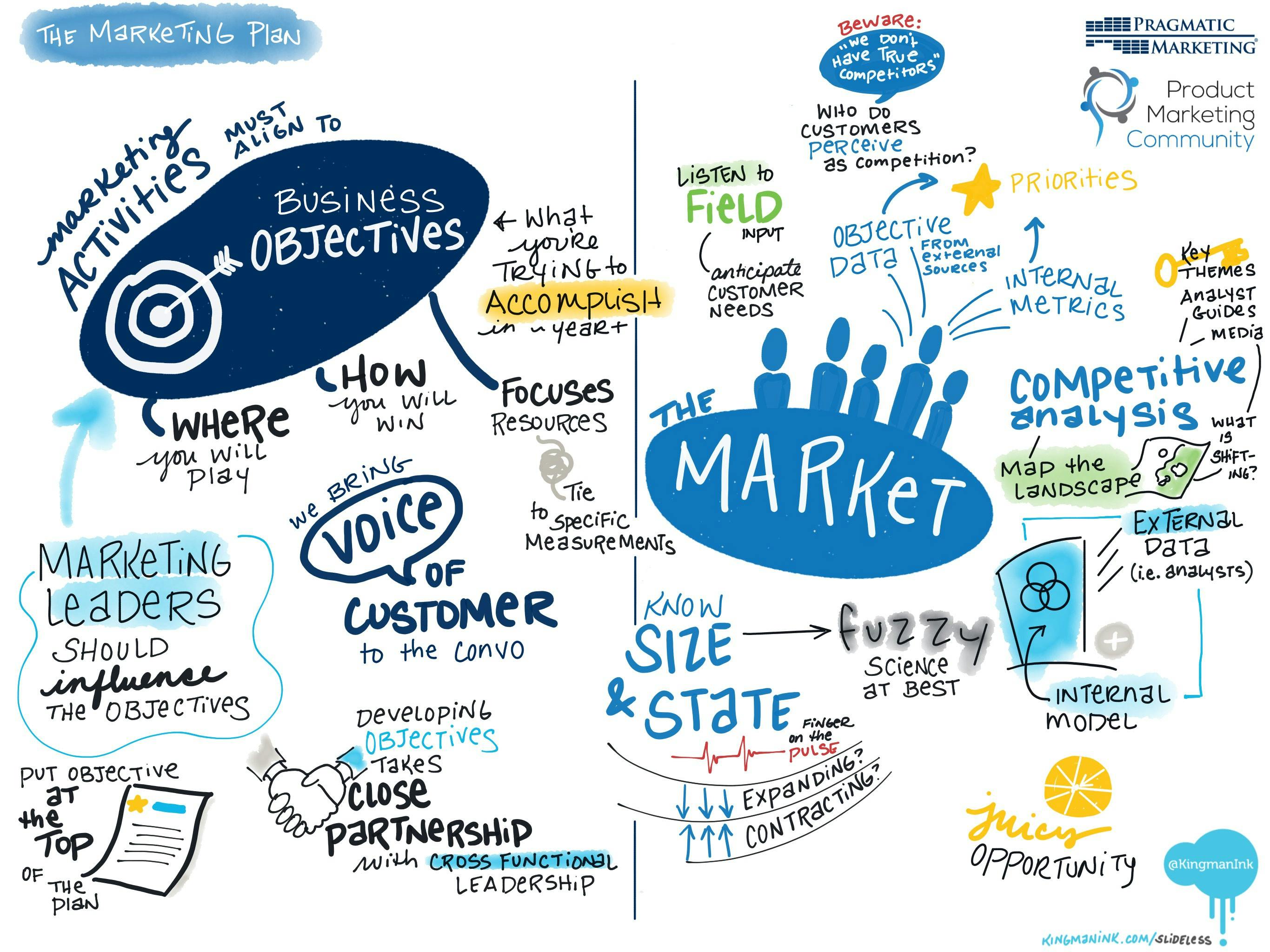
Product marketing is the process of presenting a product to the market, creating promotional plans for it, and finding methods to sell it to consumers. To increase a company's revenue and a product's demand, product marketing calls for an awareness of the target market for the product and the use of strategic messaging.
What do product marketers do?
A product marketer researches and comprehends the needs of the market, as well as the persona and emotions of the typical customer of a company's goods or services. They have an impact on product development and use their knowledge of market trends to advise the product team on how to make or improve a product, they are crucial to its conception and production. Depending on the industry in which they work, their duties and roles change. They are more of an engineer in some industries, such as technology, but in others, they may be a salesperson or a part of the marketing team.
Skills Required Of A Product Marketer.
A product marketer needs to be well-versed in the foundations of marketing, the strategy for content generation, and the process of product development. Along with other talents that would enable you to carry out the responsibilities outlined above, product marketing additionally necessitates that you have strong communication abilities.
Storytelling
Ability to develop and execute creative campaign ideas
Be proactive and develop the ability to adapt to changes
Leadership abilities.
Conclusion.
Coding is merely one aspect of technology; there are many other aspects as well. I've included a few of the numerous tech-related activities that don't require coding; feel free to ask any questions and do further research on non-technical careers in the tech.
